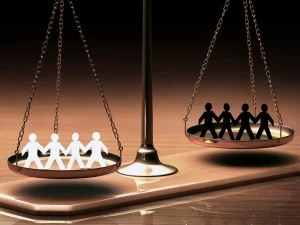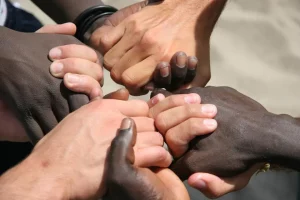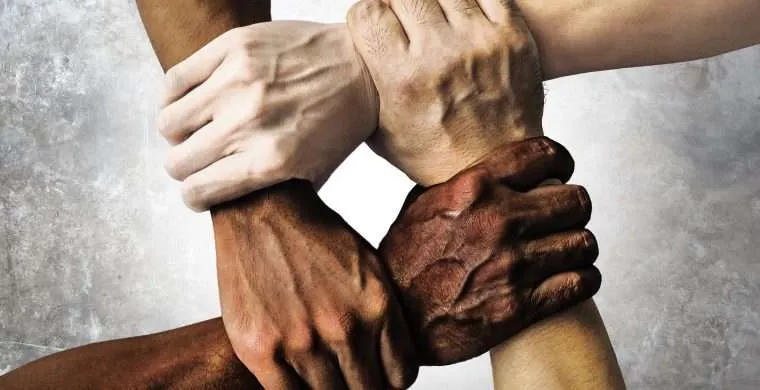Introduction:
The United States, a nation forged by diverse cultures and histories, is often characterized by its rich tapestry of racial and ethnic communities. Among these, the dynamics between the Black and White communities stand out as particularly significant, given the historical context of slavery, segregation, and ongoing struggles for racial equality. In this article, we delve into the complexities of the relationship between Black And White Community In Us, examining both historical legacies and contemporary realities to uncover the shades of unity that exist amidst disparities.
The Historical Background:

To understand the present-day dynamics between Black and White community in US,It is essential to delve into the historical roots of racial inequality in the US. The institution of slavery, which persisted for centuries, profoundly shaped. The socio-economic and political landscape with Black individuals subjected to systemic oppression and exploitation. Even after the abolition of slavery the legacy of segregation and discriminatory laws continued to perpetuate racial disparities, relegating Black Americans to second-class citizenship.
THE Civil Rights for Black And White Community:

The Civil Rights Movement of the 1950s and 1960s marked a pivotal moment in US history. As activists, both Black and White community in US the struggle against racial injustice. Iconic figures like Martin Luther King Jr. And Rosa Parks led the charge for civil rights, challenging segregationist policies and advocating for equality. The passage of landmark legislation, including the Civil Rights Act of 1964 and the Voting Rights Act of 1965, heralded a new era of progress, albeit with persistent challenges and resistance.
THE Contemporary Realities:

Despite significant strides towards racial equality, the legacy of historical injustices continues to reverberate in contemporary society, shaping the dynamics between Black and White community in us. Socio-economic disparities, including disparities in wealth, education, and healthcare, persist, disproportionately impacting Black Americans. Structural inequalities, such as discriminatory housing policies and mass incarceration, further exacerbate these disparities, perpetuating cycles of poverty and marginalization.
Social Media Platforms for Black And White Community:

In recent years, technological advancements and social media platforms have facilitated greater awareness and activism surrounding racial justice issues. Movements like Black Lives Matter have garnered widespread support, mobilizing individuals across racial lines to advocate for systemic change. Additionally, grassroots organizations and community initiatives have emerged to address specific challenges faced by Black and White community in us, from educational inequities to access to healthcare.
Challenges and Opportunities:

Navigating the complexities of Black and White community in us dynamics requires confronting uncomfortable truths and acknowledging the enduring legacy of racism in American society. Addressing systemic inequalities, whether in education, employment, or criminal justice, necessitates concerted efforts at the individual, community, and institutional levels. It requires not only dismantling discriminatory policies but also challenging implicit biases and fostering empathy and understanding.
Unity Between Black And White Community:

Moreover, fostering genuine reconciliation and unity between Black And White Community in us requires engaging in difficult conversations about privilege, power, and accountability. It entails recognizing the contributions of Black Americans to the fabric of American society while also acknowledging the harm caused by centuries of oppression and exploitation. It involves actively listening to the experiences and perspectives of marginalized communities and working collaboratively towards collective liberation.
Conclusion
In the ongoing narrative of race relations in the United States, the dynamics between Black and White communities occupy a central, albeit complex, space. While historical legacies of oppression and inequality continue to cast a long shadow, there are also moments of unity, solidarity, and resilience that offer glimpses of hope for a more inclusive and equitable future. By confronting systemic injustices, fostering dialogue, and building bridges across racial divides, we can move closer towards realizing the promise of a truly diverse and united nation.












